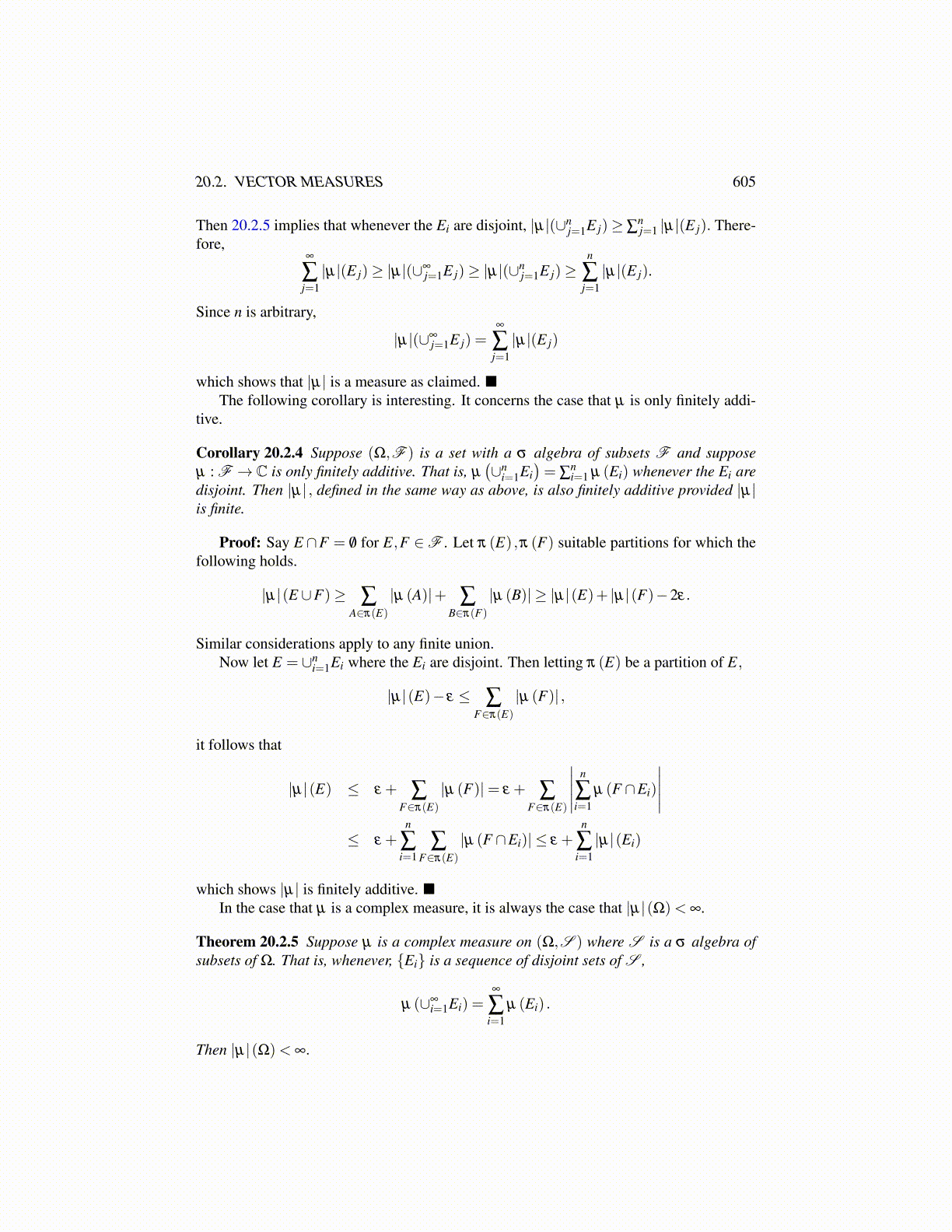
20.2. VECTOR MEASURES 605
Then 20.2.5 implies that whenever the Ei are disjoint, |µ|(∪nj=1E j)≥∑
nj=1 |µ|(E j). There-
fore,∞
∑j=1|µ|(E j)≥ |µ|(∪∞
j=1E j)≥ |µ|(∪nj=1E j)≥
n
∑j=1|µ|(E j).
Since n is arbitrary,
|µ|(∪∞j=1E j) =
∞
∑j=1|µ|(E j)
which shows that |µ| is a measure as claimed.The following corollary is interesting. It concerns the case that µ is only finitely addi-
tive.
Corollary 20.2.4 Suppose (Ω,F ) is a set with a σ algebra of subsets F and supposeµ : F → C is only finitely additive. That is, µ
(∪n
i=1Ei)= ∑
ni=1 µ (Ei) whenever the Ei are
disjoint. Then |µ| , defined in the same way as above, is also finitely additive provided |µ|is finite.
Proof: Say E ∩F = /0 for E,F ∈F . Let π (E) ,π (F) suitable partitions for which thefollowing holds.
|µ|(E ∪F)≥ ∑A∈π(E)
|µ (A)|+ ∑B∈π(F)
|µ (B)| ≥ |µ|(E)+ |µ|(F)−2ε.
Similar considerations apply to any finite union.Now let E = ∪n
i=1Ei where the Ei are disjoint. Then letting π (E) be a partition of E,
|µ|(E)− ε ≤ ∑F∈π(E)
|µ (F)| ,
it follows that
|µ|(E) ≤ ε + ∑F∈π(E)
|µ (F)|= ε + ∑F∈π(E)
∣∣∣∣∣ n
∑i=1
µ (F ∩Ei)
∣∣∣∣∣≤ ε +
n
∑i=1
∑F∈π(E)
|µ (F ∩Ei)| ≤ ε +n
∑i=1|µ|(Ei)
which shows |µ| is finitely additive.In the case that µ is a complex measure, it is always the case that |µ|(Ω)< ∞.
Theorem 20.2.5 Suppose µ is a complex measure on (Ω,S ) where S is a σ algebra ofsubsets of Ω. That is, whenever, {Ei} is a sequence of disjoint sets of S ,
µ (∪∞i=1Ei) =
∞
∑i=1
µ (Ei) .
Then |µ|(Ω)< ∞.